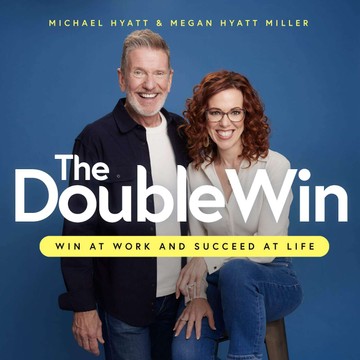

Chris Ducker
Entrepreneur and author of 'The Long Haul Leader.' He shares his experiences with burnout and strategies for sustainable success in business and life.
Top 10 podcasts with Chris Ducker
Ranked by the Snipd community

684 snips
Nov 23, 2023 • 1h 31min
Business Masterclass: How Anyone Can Build A Million Dollar Brand - Chris Ducker
In this engaging discussion, Chris Ducker, an entrepreneur and business mentor recognized for his insights on online branding, shares valuable strategies for building a personal brand. He dives into the significance of authenticity in sales and how to redefine your online presence. Ducker emphasizes niche marketing's power and offers a three-step framework for future-proofing your brand. He also highlights the importance of creating meaningful connections and the role of digital content in enhancing your reputation and income potential.

412 snips
Jan 17, 2024 • 45min
6 Mindset Shifts To Make 2024 The Best Year Of Your Life - Season 7 Roundup
This discussion features Professor Steve Peters, a psychiatrist famed for 'The Chimp Paradox'; Chris Ducker, a business expert focused on personal branding; and Dan Carter, a world champion rugby player celebrated for his resilience. They dive into transformative mindset shifts, from challenging limiting beliefs to developing personal success systems. Listeners gain insights on boosting confidence, building resilience through adversity, and crafting an authentic personal brand, all aimed at making 2024 the best year yet.

111 snips
Aug 6, 2025 • 1h 21min
433: The New Way to Build a Personal Brand (2026 Strategy)
Chris Ducker, an entrepreneur and author of 'The Long-Haul Leader', dives into the evolving landscape of personal branding. He emphasizes the importance of establishing niche communities while avoiding burnout through authentic connections. Ducker shares effective strategies for creating a unique brand, leveraging personal experiences, and managing time effectively. He discusses the role of enjoyable hobbies in fostering creativity and underscores the significance of building genuine relationships for sustainable success in a competitive digital world.

51 snips
Aug 27, 2024 • 53min
342: The Ultimate Strategy to Grow a Personal Brand in 2024!
This discussion features Chris Ducker, a personal branding expert; Rory Vaden, who specializes in building influence; and Anthony O'Neill, known for his unique take on brand growth. They dive into the importance of authenticity in personal branding and how it builds trust. Strategies for creating meaningful connections with audiences are shared, along with the necessity of storytelling in brand development. They also explore monetization tactics and how high pricing can attract dedicated clients, emphasizing the power of personal experiences in brand building.

37 snips
Sep 1, 2025 • 36min
521. Build a Business That Won’t Burn You Out with Chris Ducker
Join serial entrepreneur Chris Ducker, bestselling author of The Long-Haul Leader, as he shares his journey from burnout to sustainable leadership. He emphasizes that hustle should be a season, not a lifestyle, advocating for self-care, sleep, and the importance of defining work constraints. Discover his innovative Stop–Stay–Start audit to boost productivity and eliminate what doesn’t serve you. Chris highlights how hobbies enhance creativity and balance, paving the way for smarter, more fulfilling work and life.

36 snips
Sep 9, 2025 • 17min
Why Hustle Culture Fails—and What to Do Instead
Chris Ducker, a serial entrepreneur and author of The Long Haul Leader, joins to discuss the pitfalls of hustle culture and the importance of sustainable leadership. He shares his personal battle with burnout during the pandemic, highlighting the need to balance work with well-being. Ducker introduces his Life Operating System, a framework designed to foster recovery and meaningful connections in business. The conversation emphasizes managing energy and relationships for long-term effectiveness, rather than succumbing to the relentless drive for quick wins.

35 snips
Sep 10, 2025 • 1h 9min
CHRIS DUCKER: Bouncing Back from Burnout
Chris Ducker, an author and entrepreneur, opens up about his struggle with burnout and adrenal fatigue, stressing that hustling isn't always the solution. He shares how joy-filled practices, like bonsai gardening and birdwatching, can revitalize leaders. Ducker emphasizes self-care as a strategy, not a luxury, and highlights that success should never compromise health or happiness. He advocates for the rejuvenating power of hobbies and the importance of balance, urging listeners to invest in fulfilling personal interests for long-term well-being.

34 snips
Sep 4, 2025 • 35min
Chris Ducker: why you need a catalyst story to increase influence
In this engaging discussion, Chris Ducker, a serial entrepreneur and author, dives into the power of catalyst stories in effective communication. He emphasizes how personal anecdotes can elevate presentations, creating a deeper connection with the audience. Ducker redefines success by prioritizing well-being over hustle culture, advocating for genuine connections. He also introduces his LifeOS framework to enhance personal growth and explains his creative speech preparation process, likening it to crafting a musical setlist to maintain audience interest.

25 snips
Aug 29, 2025 • 46min
SPI 887: The Long-Haul Leader with Chris Ducker
In this conversation, Chris Ducker, an entrepreneur and author of 'The Long Haul Leader,' shares insights on avoiding burnout and building sustainable success in business. He discusses his personal struggles with chronic fatigue and stress, emphasizing the importance of prioritizing well-being and genuine relationships over hustle culture. Chris introduces practical strategies for maintaining a balanced mindset and highlights the significance of hobbies and self-care in achieving long-term goals. His refreshing perspective serves as a powerful reminder to slow down for lasting success.

19 snips
Mar 9, 2018 • 44min
Personal Branding: How to Create and Market Yourself
Want to reach more subscribers, fans, or prospects? Wondering how building a personal brand can help? In this episode, I interview Chris Ducker, serial entrepreneur and author of Rise of the Youpreneur. Show notes: https://www.socialmediaexaminer.com/292 See Privacy Policy at https://art19.com/privacy and California Privacy Notice at https://art19.com/privacy#do-not-sell-my-info.


